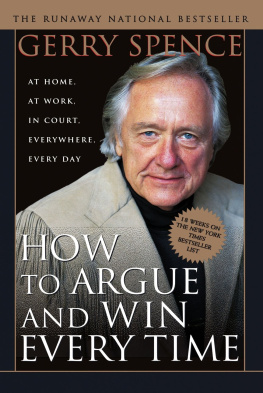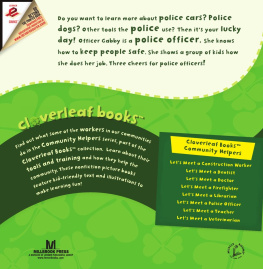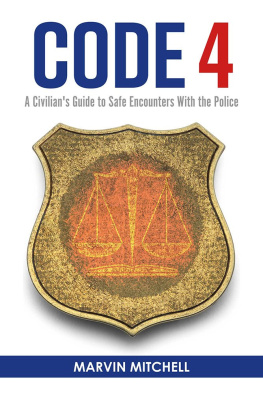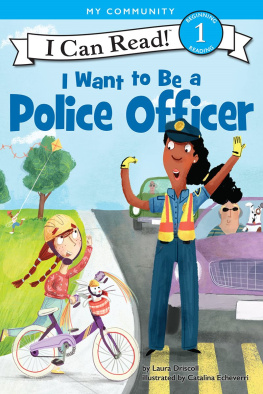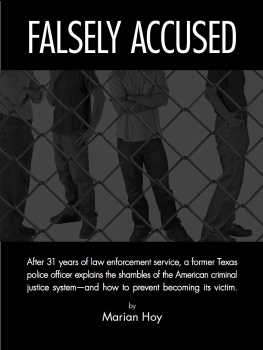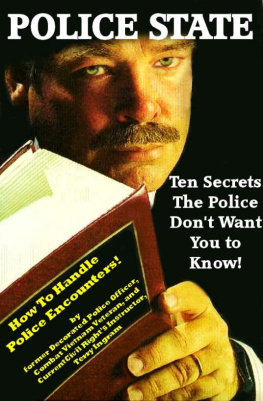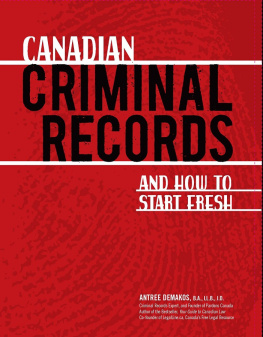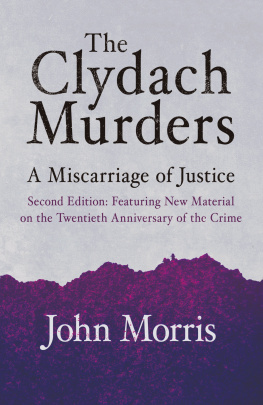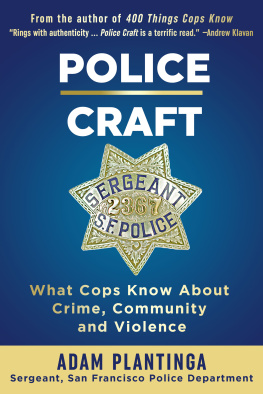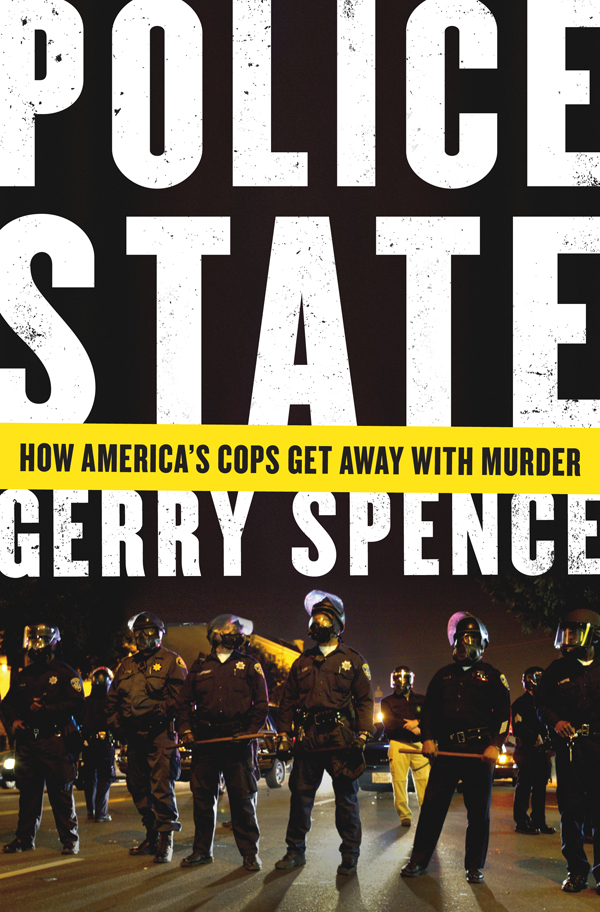Contents
Guide

The author and publisher have provided this e-book to you for your personal use only. You may not make this e-book publicly available in any way. Copyright infringement is against the law. If you believe the copy of this e-book you are reading infringes on the authors copyright, please notify the publisher at:
us.macmillanusa.com/piracy.
This book is dedicated to Edward Moriarity, one of Americas great trial lawyers, a man of unfathomable courage, and a loyal friend.
Im a trial lawyer. I make arguments. And I ask questions. Ive defended the poor, the forgotten, the lost, and the damned for over sixty years in the courtrooms of America. Over my career Ive shut out a haunting question I wasnt prepared to face: Are we safe from our own police? Have our police become killers on the loose who cover up their crimesand too often theres no one to stop them?
Who could have stopped the long-standing police brutality in Baltimore that led to the death of Freddie Gray following his less-than-joyful joyride in a police van, hands cuffed behind him, and without the protection of a seat belt? The medical examiner found that Grays catastrophic injuryhis neck was snappedhappened when he was slammed into the back of the vans interior. The examiner reported that a head injury Gray sustained matche[d] a bolt in the back of the vanjust another notorious rough ride awarded to citizens who dared be black and make eye contact with a cop.
In South Carolina, Walter Scott was stopped for a broken taillight, and when he ran he was shot multiple times in the back and killed. The killing cop tried to cover his crime with a phony story about Scott pulling a Taser. Who could have stopped that murder? And while we consider these questions we must remember that the police are our employees. Ours. How do we save ourselves from being brutalized and murdered by our own public servants?
Daily, across the land, were deluged with shocking stories of the murder and maiming of our citizens by the police. Many of us no longer feel safe in our own homes, much less the public streets. One man told me that if he stood on the corner and screamed at the top of his voice about how he felt, no one would hear himexcept, of course, the cop on the beat, whod likely haul him off for disturbing the peace, and might kill him if he ran or resisted, or looked the cop in the eye. We instinctively take comfort in our sacred rights as Americans. But when faced with an arresting police officer with questionable sensitivity to human dignity, and a justice system that is too often overworked and undertrained, a system often diseased with prejudice and sold out to Power, we may discover that our constitutional rights could be as well chronicled by a ripped-out page from yesterdays newspaper blowing down the street.
Weve been spoon-fed for decades on Law & Order and endless other cop shows assuring us that in America, whether we are rich or poor, powerless or otherwise, our police will protect us. Weve been conditioned by the corporate media, the voice of Power, to believe that the police put their lives in danger to keep us safe, all of us, no matter our race, color, or creed. Sounds good. And it seems contrary to ordinary decency, even un-American, to ask the police to protect us and then point long, accusatory fingers at them and claim too many are sadistic killers at heart. Moreover, to question the very ones we must trust to keep us safe injects us with the invasive virus of foreboding, and we live with enough undeserved anxiety already.
When we hear someone breaking into our house, when were assaulted by a brutalizing spouse, when a drunk or mentally disturbed member of our household is acting out, perhaps dangerously, we look to the police for protection. Many argue that the police may overstep lawful boundaries now and then, but the price we must pay for their protection is to make room for their occasional excesses. Besides, if they use unnecessary force its usually against gangs, dope dealers, and other deserving criminals and not against good citizens such as us. But where do we find ourselves if we fear the police as much as we fear the wild-eyed crazies beating down our doors? In the end we find ourselves asking: What power do we possess to protect ourselves from criminal cops? And when the cops and prosecutors, and often the judges, are members of the same cabal of power, how can we hope to bring about meaningful reform? Are we shackled by our own powerlessness? Is our only remedy to quietly, subserviently trust the police and hope that the cops who arrive on the scene arent suffering from an inborn or recently acquired but irresistible urge to maim and kill?
Even our vaunted United States Supreme Court has found ways to protect our killing cops and to thereby put us under the fully fledged threat of becoming citizens of a police state. The court recites how a citizen operating his car with only one headlight chose to speed away instead of exiting his car as demanded by the officer and how the police chased the car for more than five minutes at speeds in excess of 100 miles an hour. Eventually the citizen was stopped, after which the police fired fifteen shots into the car, killing both the driver and his innocent passenger. The court held that such conduct did not violate the Fourth Amendment rights of the dead and that the police were protected by what the law calls qualified immunity. What can we do? Perhaps we can do nothing more than shrug our shoulders and quietly recite one of those tired old saws: The system isnt perfect, but its the best damned system in the worldlove it or leave it. Besides, if one of our unarmed kids runs from the police, he should be shot fifteen times and killed. And his date should be killed for dating a kid who would run from the police. Both had it coming, right?
As a trial lawyer, my day-to-day focus has been on protecting the rights of persons charged with crimes, men and women Id learned to care for and who looked to me to fight for their freedom. I hadnt stepped back to examine the justice system across the land as a functional, operating organism. But one day, a startling insight slipped into a conscious moment. I realized Id never represented a person charged with a crime in either a state or federal court, in which the police, including the FBI, hadnt themselves violated the lawand on more than one occasion, even committed the crime of murder. Could this possibly hint at what many Americans, even most Americans, face in our courtrooms today? Let me say this straight: I dont mean to suggest that every cop is a bully, a criminal, or a killer. I do mean too many bullies and criminals and killers are cops. And most get away with it. And that bothersome question arises: What superior force is in place to stop them?
Several weeks ago I was speaking to a couple of hundred criminal defense attorneys, mostly public defenders. The average number of cases each of the lawyers had taken to trial or otherwise concluded was something in the neighborhood of fifty. I said to the group, Please stand up if you can honestly represent to me that in every one of your cases the police or prosecutors have in some way violated the law. I couldnt believe what I saw. All but four stood up, men, women, older lawyers and young, all with sad, serious faces looking directly at me. I turned to the four who remained seated. What about you? I asked. Why arent you standing?
The lawyer seated closest to me said, Well, Mr. Spence, you said in every case the cops violated the law. Ive had a couple where they didnt. The other three nodded their agreement.


